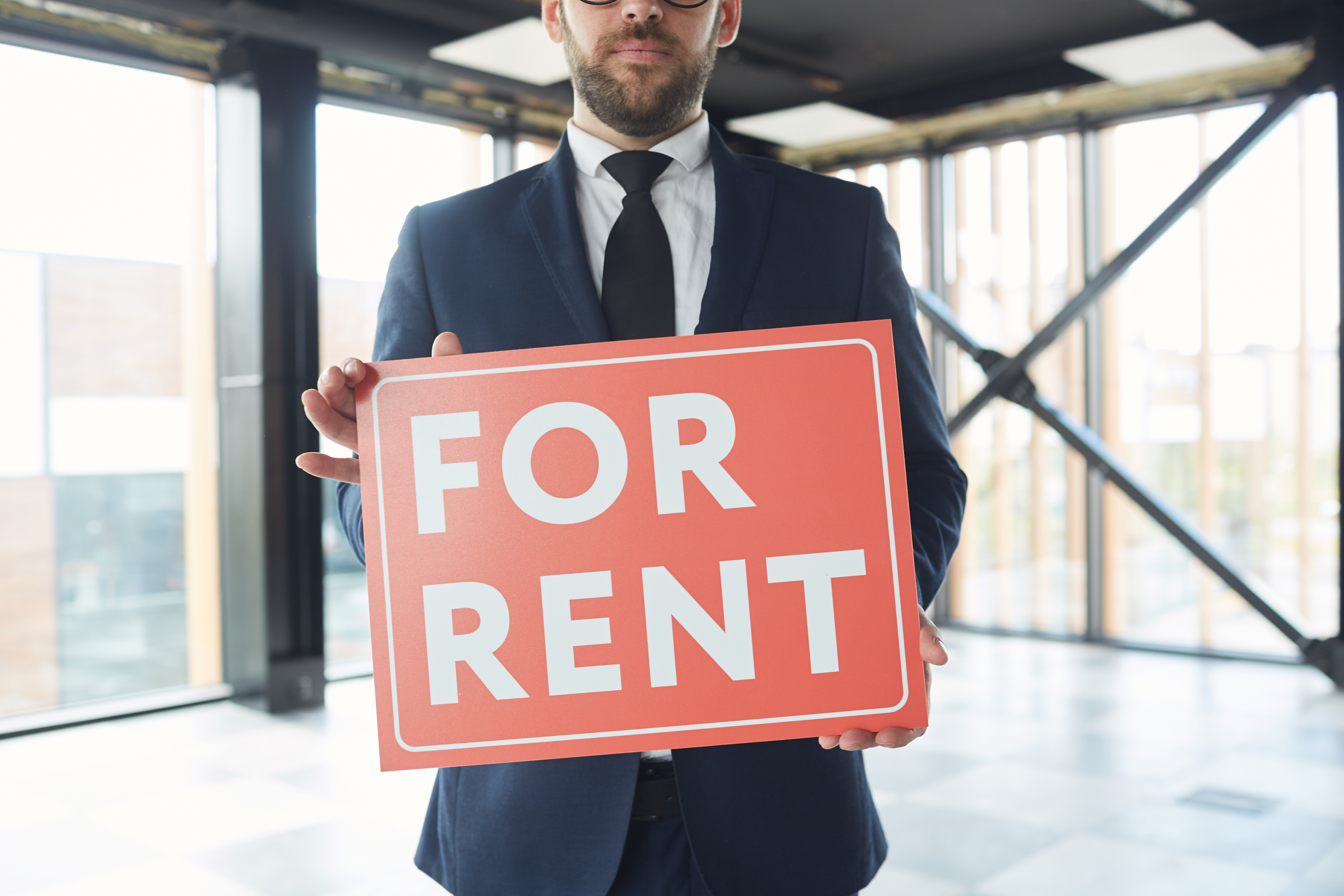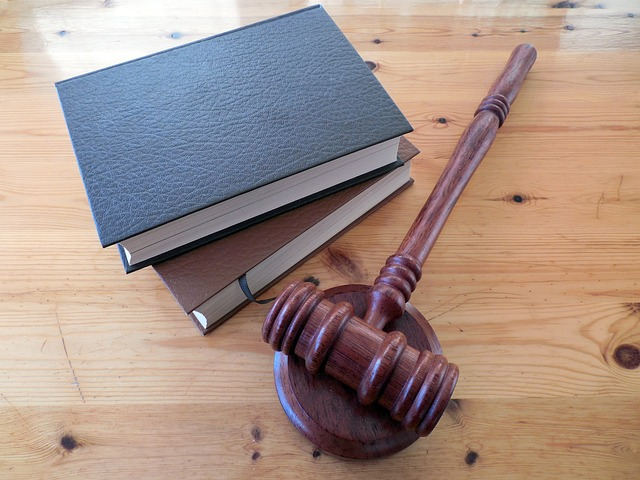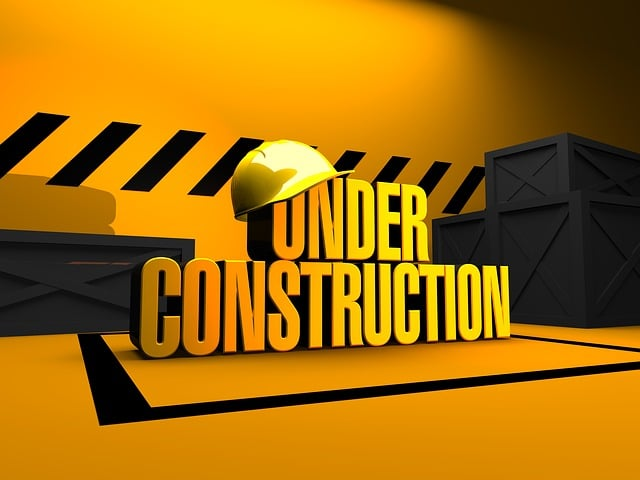California Landlord Tenant Law: Property Owner

California Landlord Tenant Laws & Rights for 2023

Renting a property in California comes with specific rights and responsibilities for both tenants and landlords. As a tenant, it’s crucial to understand the laws that protect you and ensure a fair and respectful landlord-tenant relationship. In this article, we’ll explore the key California landlord-tenant laws and rights in California for the year 2023.
1. Rent Control and Limitations
Rent control is an essential aspect of tenant protection in California. It aims to prevent unjust rent increases and ensure stability in the housing market. As of 2023, the following regulations govern rent control in California: California landlord-tenant law
1.1 Rent Increase Restrictions
In most jurisdictions in California, landlords can only increase the rent once every 12 months. Additionally, the maximum percentage increase is typically tied to the local Consumer Price Index (CPI). These restrictions help prevent sudden and unaffordable spikes in rental prices, providing tenants with stability and affordability.
1.2 Just Cause Evictions
Just cause eviction protections are crucial for safeguarding tenants from arbitrary or unjust evictions. As of 2023, California Civil Code establishes just cause eviction requirements. Landlords must have valid reasons, such as nonpayment of rent, lease violations, or engaging in illegal activities, to initiate eviction proceedings. This provision protects tenants from unfair displacement and provides them with a sense of security.
2. Tenant Rights and Responsibilities

California law ensures that tenants have certain rights and responsibilities to promote fair treatment and maintain a harmonious living environment. Here are key tenant rights and responsibilities:
2.1 Right to Privacy
As a tenant, you have the right to privacy and peaceful enjoyment of your rental property. Landlords must provide reasonable notice before entering the premises for inspections, repairs, or other purposes. This notice period varies, but it is typically 24 to 48 hours. By respecting your privacy, landlords foster a respectful and balanced landlord-tenant relationship.
2.2 Maintenance and Repairs
Landlords in California are responsible for maintaining the rental property and ensuring it meets habitability standards. They must address essential repairs related to plumbing, heating, electrical systems, and pest control. Tenants should promptly notify landlords of any necessary repairs to maintain satisfactory living conditions. It’s crucial to document repair requests in writing for future reference.
3. Security Deposits
Security deposits are a common aspect of renting a property. California law provides specific guidelines regarding security deposits:
3.1 Security Deposit Limits
As of 2023, landlords in California can request a maximum security deposit equal to two months’ rent for an unfurnished property, or three months’ rent for a furnished property. This deposit serves as a safeguard against potential damages to the rental unit and can be used by landlords to cover unpaid rent or repair costs beyond normal wear and tear.
3.2 Return of Security Deposits
Upon the termination of a lease, landlords have 21 days to return the security deposit or provide an itemized statement detailing any deductions made. If deductions are made, they must be reasonable and directly related to the tenant’s breach of the lease agreement. It’s important for tenants to document the condition of the property at the beginning and end of the lease to ensure a fair assessment of damages.
4. Discrimination and Fair Housing

Fair housing laws protect tenants from discrimination based on various factors. Here are some important points regarding discrimination and fair housing in California:
4.1 Protected Classes
In California, it is illegal for landlords to discriminate against tenants based on characteristics such as race, color, religion, sex, national origin, disability, familial status, or sexual orientation. Landlords must treat all applicants and tenants fairly and equally during the application and rental process.
4.2 Reasonable Accommodations
Landlords are required to make reasonable accommodations for tenants with disabilities to ensure equal access to housing. This may include making modifications to the property or allowing service animals, as long as these accommodations do not cause undue hardship to the landlord.
5. Retaliation Protections

To protect tenants from retaliation, California law prohibits landlords from taking adverse actions against tenants for exercising their rights. This means landlords cannot retaliate against tenants for reporting code violations, requesting repairs, or participating in tenant organizations. If retaliation occurs, tenants may have legal recourse and should seek legal advice.
Do California landlords have to pay interest on security deposits?

As of my knowledge cutoff in September 2021, California law does not require landlords to pay interest on security deposits. However, it’s essential to note that laws and regulations can change over time. Therefore, it’s advisable to consult the most up-to-date resources or seek legal advice to ensure accurate and current information regarding the specific requirements for security deposits in California.
Laws About Lease or Rental Agreements

When renting a property, having a clear and legally binding lease or rental agreement is crucial for both tenants and landlords. Lease or rental agreements outline the terms and conditions of the tenancy, protecting the rights and responsibilities of all parties involved. In this article, we’ll explore the key laws and considerations surrounding lease or rental agreements.
1. Written Lease or Rental Agreement
In many jurisdictions, including California, it is generally recommended to have a written lease or rental agreement. While oral agreements can be legally binding, a written agreement provides clarity and serves as evidence of the agreed-upon terms. Having a written agreement helps prevent misunderstandings and disputes, benefiting both tenants and landlords.
2. Essential Terms and Disclosures

A lease or rental agreement should include certain essential terms and disclosures to ensure transparency and compliance with the law. Here are some key elements that should be addressed:
2.1 Names and Contact Information
The lease or rental agreement should clearly state the full names of all parties involved, including the tenant(s) and landlord(s). It should also provide accurate contact information for effective communication.
2.2 Property Description
The agreement should include a detailed description of the rental property, including its address and specific unit or dwelling details. This helps identify the rented premises and avoid confusion.
2.3 Lease Term
The agreement should specify the lease term, indicating the start and end dates of the tenancy. This ensures clarity regarding the duration of the lease and helps both parties plan accordingly.
2.4 Rent Amount and Payment Terms
The agreement must state the agreed-upon rent amount, as well as the frequency and methods of rent payment. It should include details about late payment penalties, grace periods, and acceptable payment forms (e.g., checks, electronic transfers).
2.5 Security Deposit
If a security deposit is required, the agreement should specify the amount, conditions for its return, and any permissible deductions. It should also outline the timeframe for returning the deposit after the tenancy ends.
2.6 Maintenance and Repairs
The lease or rental agreement should address the responsibilities of both the landlord and tenant regarding property maintenance and repairs. It should clarify which party is responsible for specific repairs, routine maintenance, and resolving any disputes that may arise.
2.7 Entry and Privacy Rights
The agreement should outline the landlord’s rights to enter the rental property for inspections, repairs, or other legitimate purposes. It should also specify the notice period required before entry and any exceptions to the notice requirement.
2.8 Pet Policy

If pets are allowed or restricted, the agreement should include a clear pet policy outlining any fees, restrictions, or requirements related to pets on the premises. This helps avoid conflicts and ensures compliance with local regulations.
3. Compliance with Local and State Laws

Lease or rental agreements must comply with local and state laws governing landlord-tenant relationships. These laws may vary depending on the jurisdiction. Some common areas of regulation include rent control, tenant rights, eviction procedures, and fair housing laws. It’s essential for both tenants and landlords to be aware of the specific laws and regulations applicable to their location.
4. Professional Legal Advice

While generic lease or rental agreement templates are available, seeking professional legal advice can be beneficial to ensure compliance with local laws and address specific needs. An attorney specializing in landlord-tenant law can review and customize the agreement to protect the interests of both parties.
Conclusion
A well-drafted lease or rental agreement is essential for establishing a clear understanding between tenants and landlords. It protects the rights and responsibilities of all parties involved and helps prevent conflicts or misunderstandings. By addressing key terms and complying with local laws, both tenants and landlords can enter into a rental agreement with confidence and peace of mind.
Frequently Asked Questions

Q1: Is a written lease or rental agreement required in California?
While oral agreements can be legally binding in California, having a written lease or rental agreement is highly recommended. A written agreement provides clarity and serves as evidence of the agreed-upon terms, reducing the potential for disputes.
Q2: What information should be included in a lease or rental agreement?
A lease or rental agreement should include essential information such as the names and contact information of all parties, a property description, lease term, rent amount and payment terms, security deposit details, maintenance and repair responsibilities, entry and privacy rights, and any applicable pet policies.
Q3: Can a lease or rental agreement include additional terms or restrictions?
Yes, as long as they do not violate local or state laws, lease or rental agreements can include additional terms or restrictions specific to the needs and preferences of both parties. It’s important to ensure that any additional terms are fair, reasonable, and enforceable.
Q4: Can I modify a lease or rental agreement after signing it?
Modifying a lease or rental agreement after it has been signed typically requires the agreement of both parties. It is recommended to document any modifications in writing and have both parties sign and date the amendments to ensure clarity and avoid disputes.
Q5: Should I consult a lawyer when drafting or reviewing a lease or rental agreement?
Seeking legal advice from an attorney specializing in landlord-tenant law is advisable when drafting or reviewing a lease or rental agreement. They can ensure compliance with local laws, customize the agreement to specific needs, and protect the interests of both tenants and landlords.
Tenant Rights and Responsibilities
As a tenant, you have specific rights and responsibilities that ensure a fair and respectful landlord-tenant relationship. Understanding and exercising your rights while fulfilling your responsibilities is crucial for a positive renting experience. In this article, we’ll explore tenant rights and responsibilities to help you navigate your role as a tenant effectively.
1. Right to a Habitable Property

One of the most fundamental tenant rights is the right to live in a safe and habitable property. Landlords are responsible for maintaining the rental unit in a livable condition, which includes:
- Providing functioning heating, plumbing, and electrical systems.
- Ensuring proper sanitation and waste disposal.
- Addressing pest infestations or hazardous conditions.
- Maintaining the structural integrity of the property.
If your rental unit falls into disrepair or becomes uninhabitable, it’s important to notify your landlord promptly and in writing, allowing them a reasonable timeframe to address the issues.
2. Right to Privacy
As a tenant, you have the right to privacy within your rental unit. Landlords should not enter your unit without proper notice, except in emergencies or specific circumstances outlined in the lease or rental agreement. In most cases, landlords are required to provide reasonable notice, typically 24 to 48 hours, before entering the premises for repairs, inspections, or other purposes.
3. Right to Non-Discrimination
Fair housing laws protect tenants from discrimination based on race, color, religion, sex, national origin, disability, familial status, or sexual orientation. Landlords must treat all applicants and tenants fairly and equally during the application process, tenancy, and termination.
If you believe you have been discriminated against, you can file a complaint with the appropriate housing agency or seek legal advice.
4. Right to Quiet Enjoyment
Tenants have the right to enjoy their rental property without undue disturbance or interference from the landlord. This means landlords should not harass, intimidate, or create unreasonable noise or disruption that interferes with your peaceful enjoyment of the property.
5. Responsibility to Pay Rent
As a tenant, you have the responsibility to pay rent on time and in full according to the terms specified in the lease or rental agreement. Timely rent payment is crucial to maintain a good relationship with your landlord and ensure your tenancy remains in good standing.
If you encounter financial difficulties that prevent you from paying rent, it’s important to communicate with your landlord as soon as possible. They may be willing to work out a payment plan or make other arrangements to avoid eviction.
6. Responsibility to Maintain Cleanliness
Tenants are responsible for maintaining cleanliness and proper sanitation within their rental unit. This includes regular cleaning, disposing of trash appropriately, and avoiding activities that may cause damage or excessive wear and tear.
7. Responsibility to Report Repairs
Tenants have a responsibility to report any necessary repairs or maintenance issues promptly. Inform your landlord in writing about any problems or damages that require attention. Documenting these requests can help protect your rights and ensure that necessary repairs are addressed in a timely manner.
8. Responsibility to Abide by Lease Terms
Tenants are obligated to abide by the terms and conditions outlined in the lease or rental agreement. This includes adhering to restrictions on pets, noise levels, subletting, and any other provisions specified in the agreement. Violating lease terms can result in legal consequences or eviction.
Understanding your tenant rights and fulfilling your responsibilities is essential for a positive and harmonious landlord-tenant relationship. By knowing your rights to a habitable property, privacy, non-discrimination, and quiet enjoyment, you can assert yourself confidently. Simultaneously, meeting your responsibilities, such as paying rent on time, maintaining cleanliness, reporting repairs,
Laws About Property Maintenance and Repairs On Rental units

As a tenant, it’s crucial to understand the laws and regulations regarding property maintenance and repairs for rental units. Landlords have certain obligations to maintain the habitability of the property, while tenants also have responsibilities to report issues and cooperate with the repair process. In this article, we’ll explore the laws governing property maintenance and repairs on rental units.
1. Landlord’s Responsibility for Maintenance and Repairs

Landlords are generally responsible for ensuring that rental units are maintained in a habitable condition. The specific maintenance and repair responsibilities can vary depending on local and state laws, as well as the terms outlined in the lease or rental agreement. However, some common obligations include:
- Maintaining the structural integrity of the building, including roofs, walls, and floors.
- Ensuring the proper functioning of plumbing and electrical systems.
- Providing hot water and adequate heating facilities.
- Addressing pest infestations, such as rodents or insects.
- Ensuring the property complies with health and safety codes.
2. Tenant’s Responsibility to Report Repairs
Tenants have a responsibility to promptly report any necessary repairs or maintenance issues to their landlord or property manager. It’s advisable to submit repair requests in writing, as it creates a record of the communication and helps protect the tenant’s rights.
3. Landlord’s Duty to Address Repair Requests

Upon receiving a repair request from a tenant, landlords generally have an obligation to address the issue within a reasonable timeframe. The specific timeframe may vary depending on the urgency and nature of the repair. For example, emergency repairs such as gas leaks or major plumbing issues typically require immediate attention.
4. Remedies for Unaddressed Repairs

If a landlord fails to address necessary repairs within a reasonable timeframe, tenants may have certain remedies available to them. These remedies can vary depending on local laws and may include:
- Withholding rent: In some jurisdictions, tenants may be permitted to withhold rent or pay reduced rent until the repairs are completed. However, it’s important to consult local laws and seek legal advice before taking this step to avoid potential eviction risks.
- Repair and deduct: In certain circumstances, tenants may be allowed to make the repairs themselves and deduct the cost from their rent. Again, it’s crucial to understand local laws and follow the proper procedures to avoid legal consequences.
- Legal action: If the landlord continuously fails to address necessary repairs, tenants may have grounds to take legal action, such as filing a lawsuit or seeking a court order to compel the landlord to make the repairs.
5. Tenant’s Responsibility for Damage

Tenants are generally responsible for any damages they cause to the rental unit beyond normal wear and tear. It’s important to report any damages to the landlord and discuss the appropriate measures for repair or reimbursement.
6. Local and State Regulations

It’s essential to be aware of the specific maintenance and repair regulations in your local area and state. Some jurisdictions may have additional requirements or guidelines for property maintenance and repairs. Familiarize yourself with these regulations to ensure you understand your rights and responsibilities as a tenant.
Understanding the laws regarding property maintenance and repairs on rental units is essential for both tenants and landlords. By knowing your rights as a tenant to a habitable property and reporting necessary repairs, you can maintain a safe and comfortable living environment. Landlords must fulfill their obligations to address repair requests within a reasonable timeframe to ensure compliance with the law. Consulting local regulations and seeking legal advice can provide further guidance in navigating maintenance and repair issues.
When it comes to renting a dwelling unit, it’s important for both tenants and landlords to be aware of local rent control laws, understand the definition of a dwelling unit, and follow the requirements for providing written notice. In this article, we’ll explore these topics to help you navigate the rental process effectively.
1. Local Rent Control Laws
Rent control laws exist in some jurisdictions to regulate rent increases and provide additional protections for tenants. These laws are typically enacted at the city or county level and vary widely. Rent control ordinances may limit the amount of rent increase a landlord can impose and the frequency at which they can raise the rent.
It’s crucial to research and understand the specific rent control laws in your local area. Familiarize yourself with any applicable restrictions or requirements to ensure compliance as a landlord or benefit from the protections as a tenant.
2. Dwelling Units and Definition
A dwelling unit refers to a place where people live, such as an apartment, house, or condo. The definition of a dwelling unit may vary slightly based on local regulations, but generally, it includes a self-contained living space with basic amenities such as a kitchen, bathroom, and sleeping area.
Understanding the concept of a dwelling unit is essential for both tenants and landlords. It helps determine the rights, responsibilities, and applicable laws related to renting and maintaining the living space.
3. Written Notice Requirements
Written notice plays a crucial role in various aspects of the landlord-tenant relationship, including termination of tenancy, rent increases, or entry into the rental unit by the landlord. Here are some common written notice requirements:
3.1 Termination of Tenancy
When a landlord wishes to terminate a tenancy, they typically must provide written notice to the tenant. The notice period and requirements may vary based on local laws, the length of the tenancy, and the reason for termination. For example, in some jurisdictions, landlords must provide a longer notice period for tenants who have lived in the unit for a certain period, such as one year or more.
3.2 Rent Increases
If a landlord plans to increase the rent, written notice is generally required. The notice period for rent increases may be governed by local rent control ordinances or state laws. In many cases, landlords must provide a specific timeframe of advance notice, such as 30 or 60 days, depending on the jurisdiction.
3.3 Entry into the Rental Unit
Landlords typically need to provide written notice to tenants before entering the rental unit for various reasons, such as inspections, repairs, or showings to prospective tenants. The notice period may be determined by local laws or lease agreements and often ranges from 24 to 48 hours. However, specific exceptions exist for emergency situations.
It’s important for both tenants and landlords to understand the specific written notice requirements in their local area. Failure to comply with these requirements may lead to legal complications or disputes.
Understanding local rent control laws, the definition of a dwelling unit, and the requirements for providing written notice is essential for tenants and landlords alike. Tenants can benefit from the protections offered by rent control laws, while landlords must comply with applicable regulations. By following the rules regarding dwelling units and providing written notice as required, both parties can ensure a smooth and legally compliant rental experience.
Remember to research and consult the specific laws and regulations in your local area to understand the unique requirements and rights that apply to your situation.














